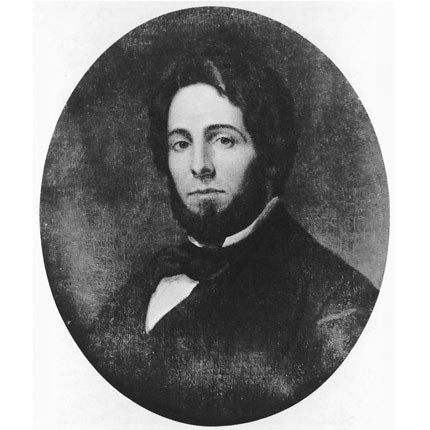The Passages of Herman Melville, By Jay Parini
The truth about Melville remains as elusive as that great white whale

In his exquisite short story "Bartleby, the Scrivener", Herman Melville writes of his protagonist that "no materials exist for a full and satisfactory biography of this man".
And so it is with Melville himself. Posterity lifted the author of Moby-Dick to the ranks of America's greatest writers, but he was overlooked in his own time, many of his letters and manuscripts are lost and there is much that remains open to conjecture.
Jay Parini's novel The Passages of Herman Melville aims to give us a clearer picture of the enigmatic "H M", recreating episodes from his early adventures at sea to his final years as a struggling poet. Parini's historical fiction – he has previously written novels about Tolstoy and Walter Benjamin – is based on his conviction that literary art can illuminate where conventional scholarship cannot: he has Melville observe that "only novels tell the unadorned truth". He explores aspects of Melville's life that remain beyond the reach of biographers: the subtleties of his relationship with his wife, Lizzie; the depth of his frustration at the commercial failure of his books; the homoerotic undercurrent to his friendship with Nathaniel Hawthorne.
The first half of the novel describes Melville's experiences as a young sailor. Parini recounts how, on a whaling voyage in the Pacific in 1842, Melville jumped ship and lived among a tribe of cannibals on the island of Nuku Hiva before escaping to Hawaii to join the crew of an American frigate bound for home. It is a thrilling tale, but Parini's account feels redundant; after all, Melville published two very readable books – Typee and Omoo – about his time in Polynesia, and one might as well consult the man himself.
Another problem with these chapters is Parini's tendency to speculate about where Melville picked up the ideas for the rich, philosophical fiction he penned in the 1850s. Bartleby's famous remark "I prefer not to" is spoken by a recalcitrant shipmate on an early cruise ("the phrase etched itself in H M's brain"), while Moby-Dick's Captain Ahab springs from the tale of a monomaniac whaling captain overheard one night on deck ("the narrative sunk deep in Herman's memory"). This crude approach gives the false impression that Melville – possessed of perhaps the most powerful imagination in American literature – was simply a talented magpie.
Parini is better when he turns to the later years. The account of Melville's all-too-brief career as a writer, before the steady decline into obscurity, is delicate and convincing. And when Parini appraises the work, he has the knack for finding just the right phrase, as when he refers to Melville's "iron whimsicality": a more precise description of his singular prose style you will not find. The image of Melville as an old man, after he had given up fiction and taken a job in a New York customs house, is beautifully drawn: "He had lived a thousand lives thus far ... in a way, he was already posthumous, ghosting the streets, watching and listening."
But while there is much to admire in this novel, it only deepens the mystery of Melville. The narrative is told partly in Lizzie's voice, partly in the third person, which means that we must rely on dialogue for glimpses of Melville's inner life. Unfortunately he is curiously reticent, offering only the odd gnomic utterance ("What lies beyond interests me"; "We can't see ourselves without stories"). As a result, Melville remains, like the white whale of his great novel, elusive to the last.
Join our commenting forum
Join thought-provoking conversations, follow other Independent readers and see their replies
Comments
Bookmark popover
Removed from bookmarks